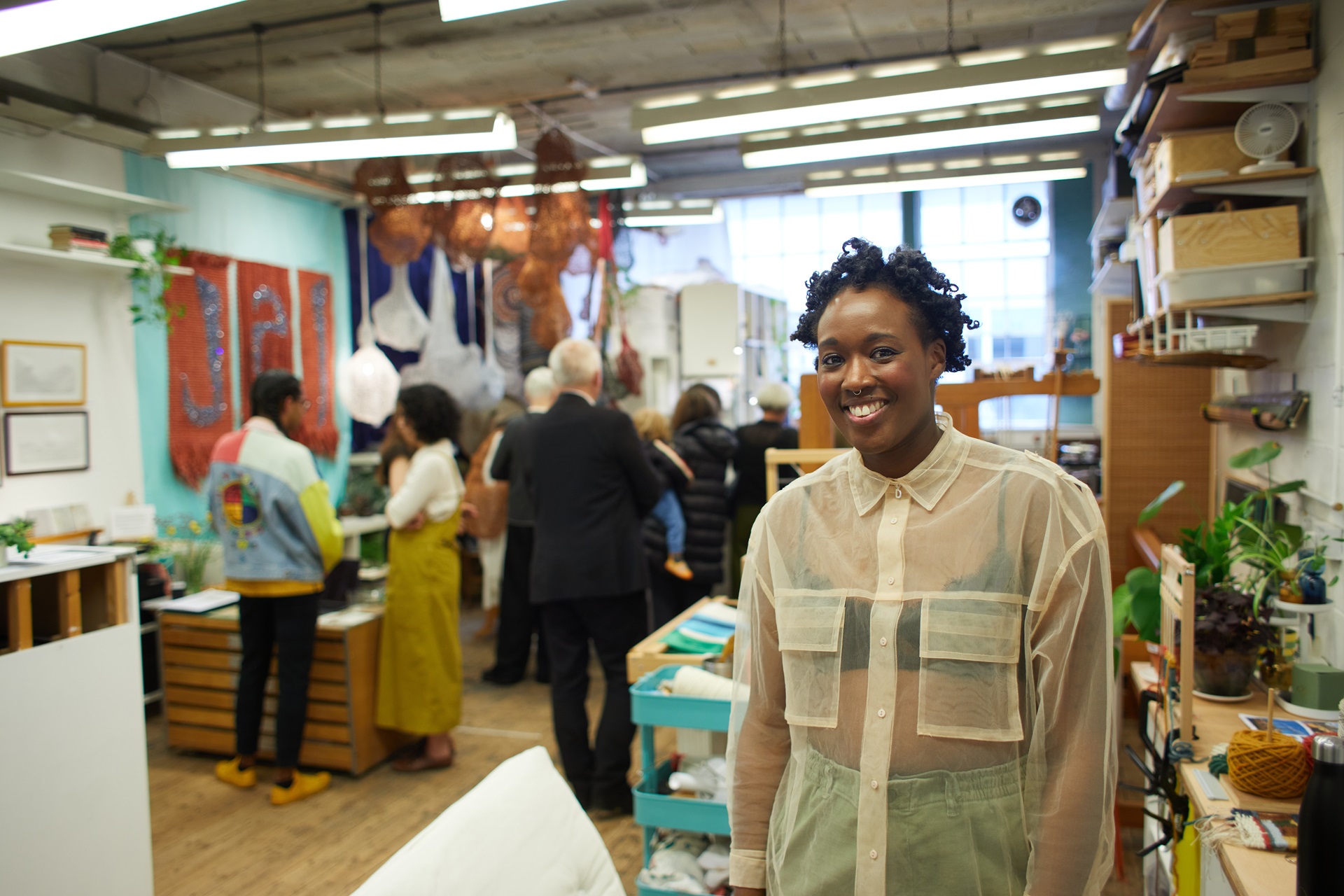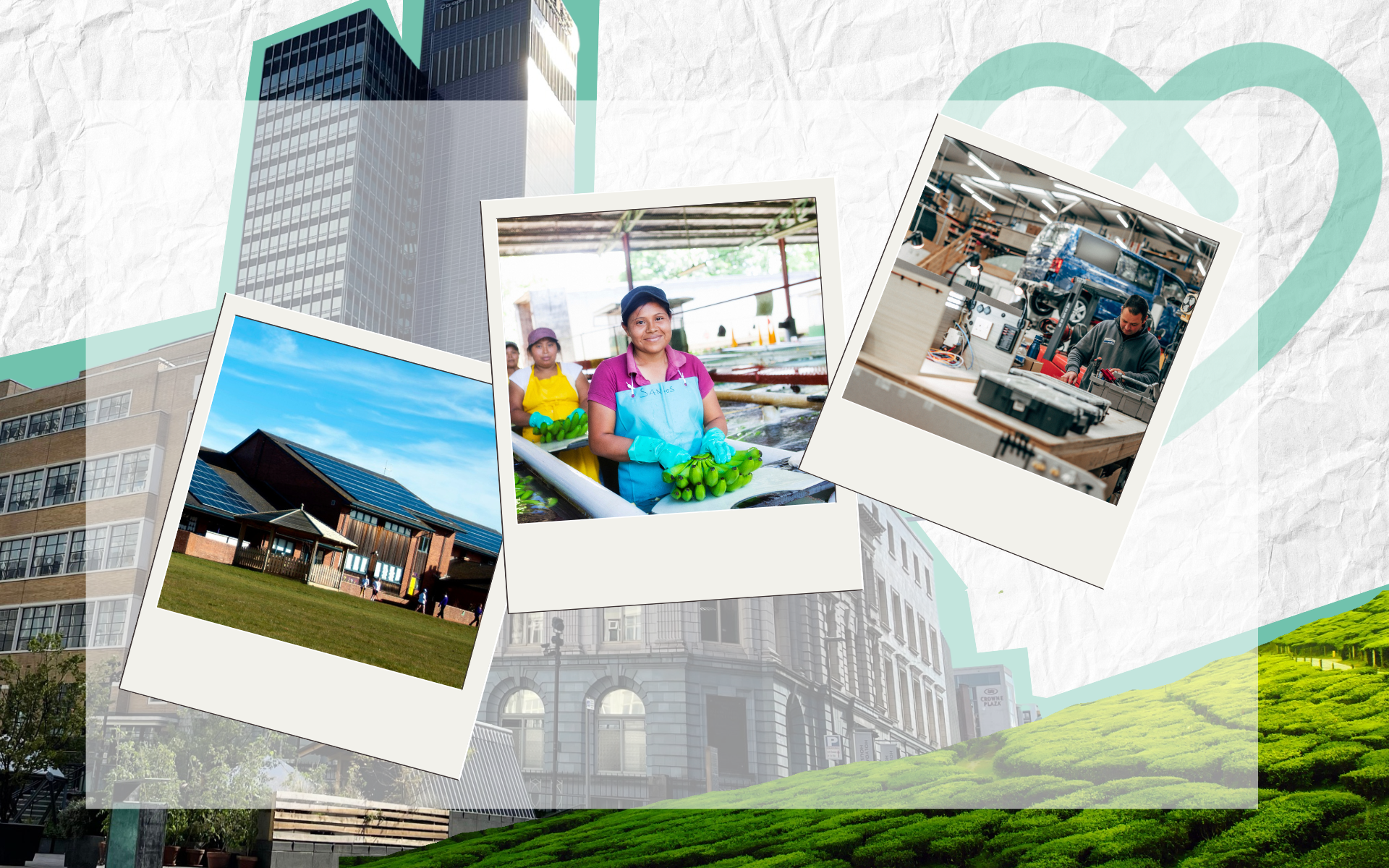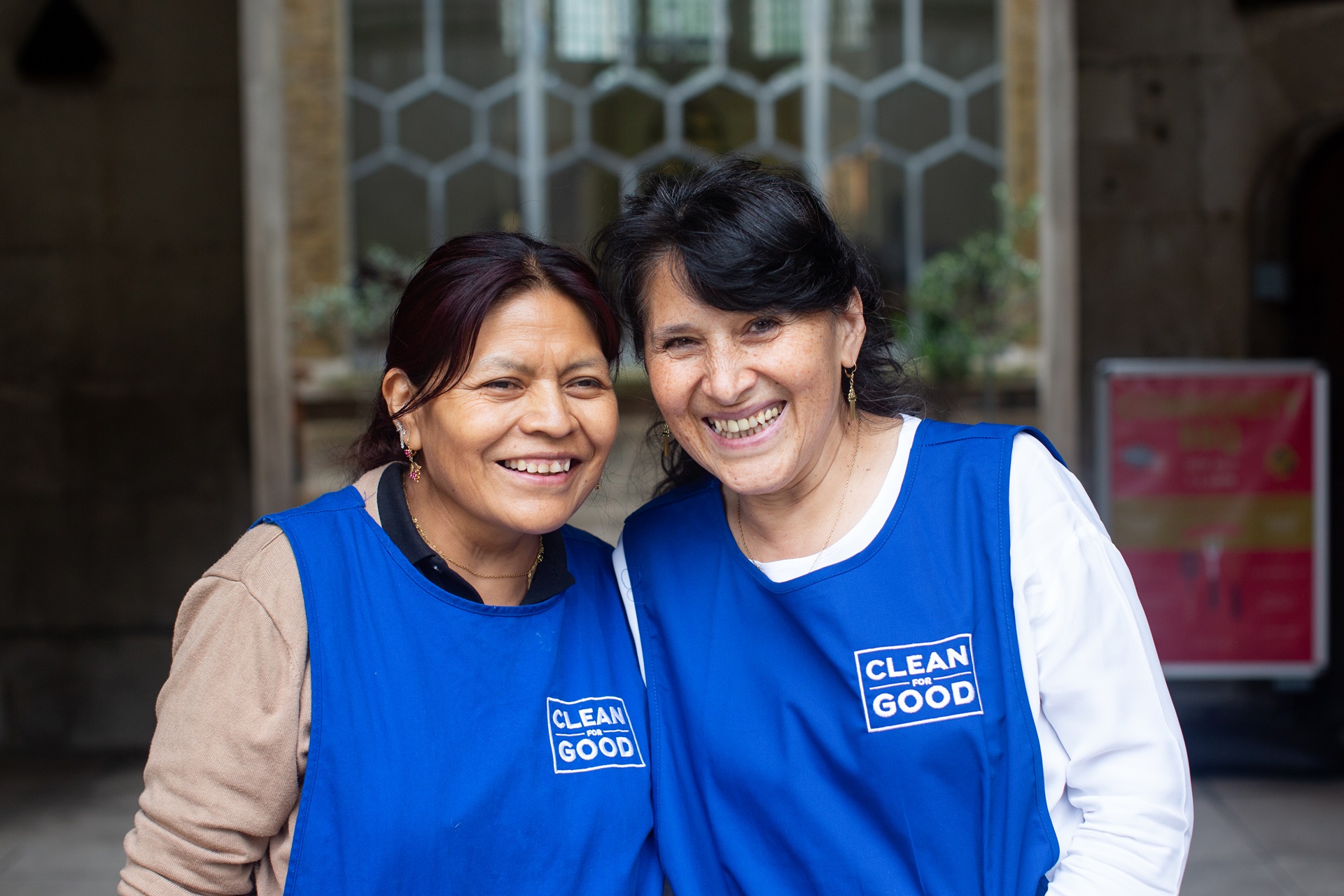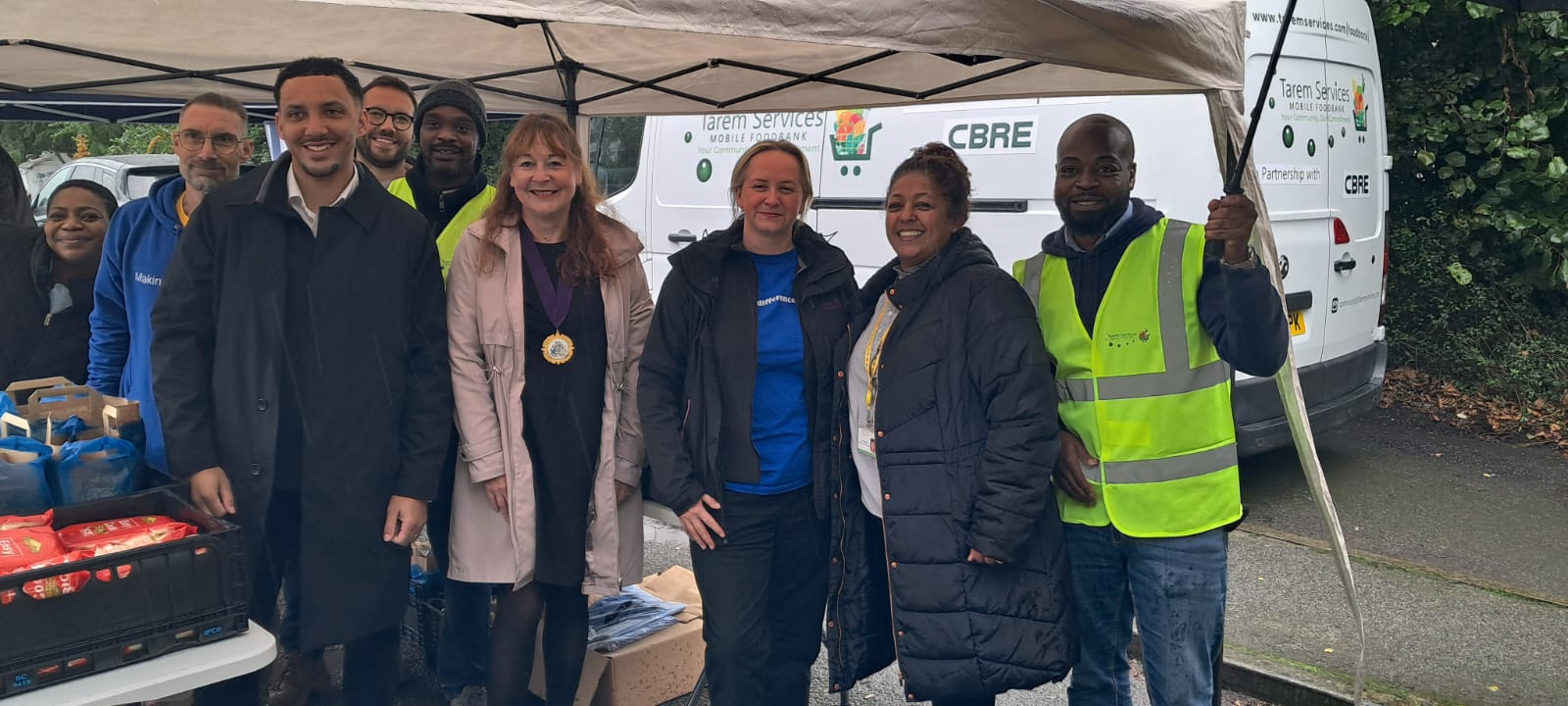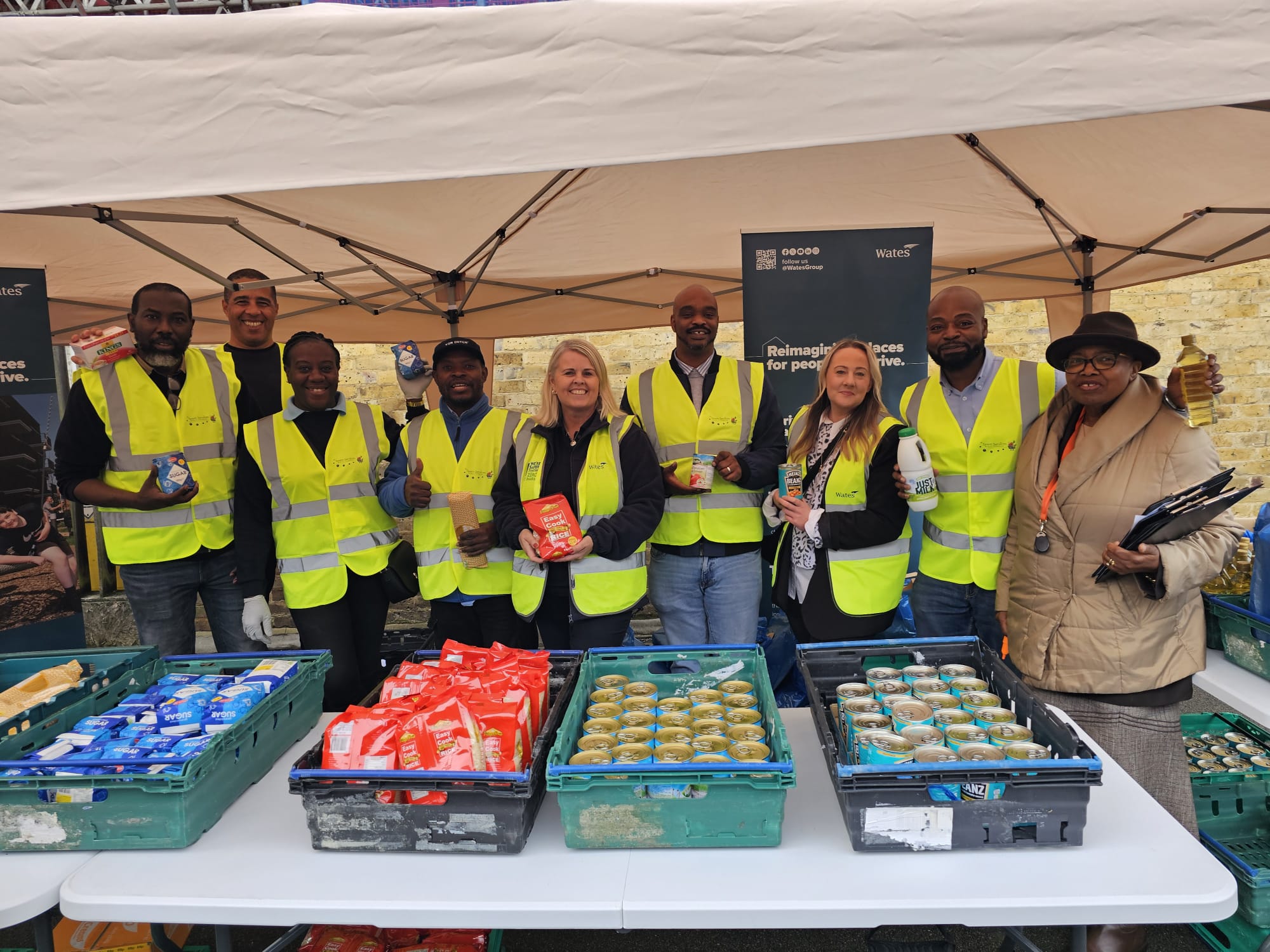
Member updates
Tarem Services and Wates team up to tackle food insecurity in Kilburn Square
On Tuesday, 15 October 2024, Tarem Services, a social enterprise dedicated to tackling in-work poverty and food insecurity, joined forces with leading UK construction company Wates Group to bring essential food support to families in Kilburn Square through their Mobile Foodbank initiative. Tarem Services has partnered with Wates as a member of their supply chain, employed by the group to provide cleaning services and labour supply in Brent and on several other of their London contracts. Wates are currently delivering a wide range of planned works at Kilburn Square on behalf of Brent Council. A total of 100 food bags were distributed, each containing enough food to feed at least two people, benefiting approximately 200 individuals. This distribution directly addresses immediate community needs and demonstrates the commitment of both Tarem Services and Wates to supporting local communities. This collaboration forms part of Tarem Services' broader mission to provide support where it is needed most. Managing Director Titus Komolafe expressed his gratitude for the partnership and the positive impact achieved: “At Tarem Services, tackling in-work poverty starts with addressing fundamental needs like food security. Our partnership with Wates reflects what can be achieved when businesses are driven by shared social values. Together, we are making a real difference in the lives of families here in Kilburn Square.” James Gregg, Regional Managing Director for Wates, said: “Improving the lives of residents and creating thriving communities is at the core of our business. Partnering with social enterprises like Tarem to deliver initiatives like this allows us to support the local community in becoming stronger and more resilient. " Building Stronger Communities This initiative demonstrates how corporate and social enterprise partnerships can drive positive change and foster resilient communities. By collaborating with organisations like Wates, Tarem Services not only delivers high-quality services but also creates social value that uplifts the community. To learn more about Tarem Services’ Mobile Foodbank and discover how you can support our community initiatives, visit: taremservices.com/foodbank About Tarem Services Tarem Services Limited is a social enterprise focused on tackling in-work poverty and food insecurity, especially among cleaners in the UK. Founded in 1999 with the support of a Prince’s Trust grant, Tarem Services has built a reputation for responsible business practices. The company provides office and school cleaning, construction labour supply, pest control, and waste management services, all while remaining committed to social responsibility and environmental sustainability. About Wates Group Established in 1897, we are the UK’s leading family-owned development, building and property maintenance company. In 2022 we employed over 4,000 people and generated profits of £33.7m from a turnover of £1.89bn, working with a wide range of public and private sector customers and partners. Now in our fourth generation of family ownership, we’re committed to the long-term sustainability of the built environment and to making our industry more inclusive and representative of the communities we work in. We are one of The Times Top 50 Employers for Gender Equality and an Investors in People Gold accredited company. We are driven by our shared purpose of working together to inspire better ways of creating the places, communities, and businesses of tomorrow. wates.co.uk
3 min



